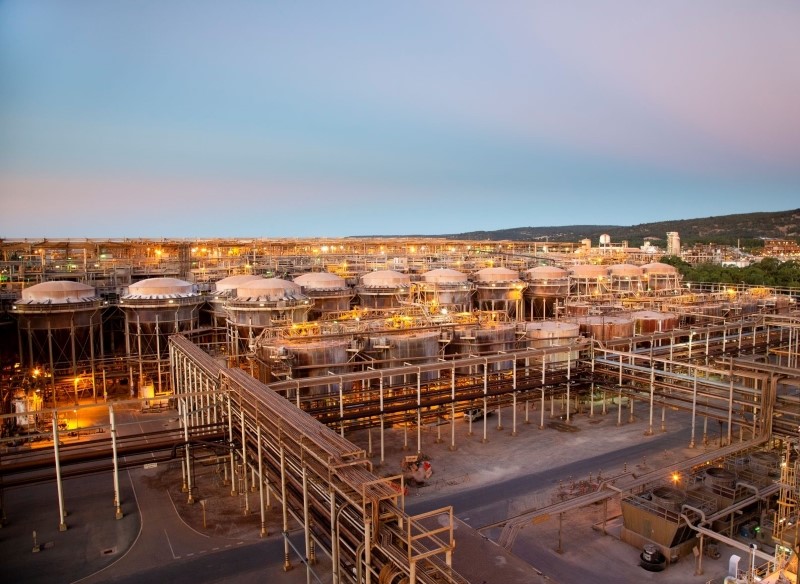

Chevron has requested two more days to take care of the technical problems leading to a drastic breakdown at its Wheatstone domestic gas plant. This can be regarded as the third West Australian (WA) gas plant breakdown during the whole summer. All this turmoil has prompted Alcoa to ignite diesel generators to continue with their smelting activities.

On January 8, WA Mines and Petroleum Minister Bill Johnston confined to sources that the Wheatstone plant supplying approximately 175 terajoules or about 17 per cent of West Australia’s domestic gas production, would halt operations until the break of Tuesday this week.
The unprecedented breakdown has created a vacuum in WA’s energy supply chain. Mr Johnston made it known that he was “personally disappointed” by Chevron’s delay but “confident there was no risk” of natural gas or electricity supply shortages to residential consumers.
Mr Johnston commented: “We expected Chevron to restart its Wheatstone facility this morning. However, the restart has been delayed to Tuesday. It’s very unusual that there are multiple commercial facilities out at the same time, but it does show the robustness of Western Australia’s energy system that we can have three major incidents in the gas supply system and still maintain a sufficient supply for Western Australia’s energy needs.”
The state government had to immediately spring into action to source additional supplies from storage alongside decreasing the consumption levels of some industrial users to survive the ‘technical failure’ at the Onslow plant situated on the WA coast. The power discrepancy was visible from January 5, Thursday and it was enough to cripple the economy.
Although the Australian Energy Market Operator claimed there was no electricity supply crisis in WA’s main power grid situated at the southwest corner of the state, the incident evoked a series of reactions among industrial consumers.
One of the leading aluminium companies in the world, Alcoa, had to turn on diesel generators at its Pinjarra and Kwinana alumina refineries to substitute the gas-induced power that ran associated activities.
Some associates from Alcoa blurted out: “Western Australia is currently experiencing gas supply issues resulting from production challenges being encountered by key suppliers, including some contracted to supply gas to Alcoa.”
“To assist in managing this domestic gas issue, we have switched to diesel as a temporary fuel source for some operational needs at our Kwinana and Pinjarra alumina refineries,” the person continued.
Mr Johnson explained that the contemporary energy market leaders had chipped to lend the support which standardised the system, so that common households do not suffer due to this energy crisis.
Mr Johnston asserted: “We note the operation of the free market has taken place and that gas suppliers and users are transacting [in] business to make sure that there’s sufficient gas available to various industrial operators, and we want to also thank both Woodside and its joint venture partners at the North West Shelf along with Kleenheat, Alinta, Alcoa, Rio Tinto, who have made voluntary contributions to assist us in stabilising the [gas market] over the weekend,”
Somehow, he also asserted that households would get the required power to continue with daily exercises.
“Gas supply to houses for use directly in residential settings is only 7 per cent of domestic gas use in Western Australia. It is not a significant amount for the total volume of natural gas used in Western Australia ... Supply to the residents is well within the capacity of the scheme, even if there was a larger scale disruption,” he pointed out, adding 27 per cent of domestic onshore gas usage was used for electricity.
The AEMO executive general manager of WA and strategy, said Kate Ryan, confirmed: “At this stage, there is no impact to electricity supplies in the South West Interconnected System, with sufficient supply available to meet demand.”
Ms Ryan assured the onlookers that AEMO would work closely with the government and gas industry in sharing valuable information on the market discrepancy via WA Gas Bulletin Board’s emergency management system.
A Chevron official has promptly notified sources that the Wheatstone domestic gas plant malfunction has been partly due to an equipment failure. Partly owned by Woodside Energy, Chevron has not curbed down its export-quality LNG production.
The official also specified: “Chevron is continuing restart activities at the Wheatstone domestic gas plant, which is expected to resume production in the coming days ... We are continuing to work with our customers, the regulator and the broader market to meet demand, including Gorgon’s 300 terajoules domestic gas plant running at full capacity.”
The US-based energy head is still operating at full capacity from its domestic gas plant housed at its larger LNG project in WA, the Gorgon project on Barrow Island; he assured the public. This domestic gas plant is capable of supplying 300 TJ a day when in optimum capacity.
Responses








